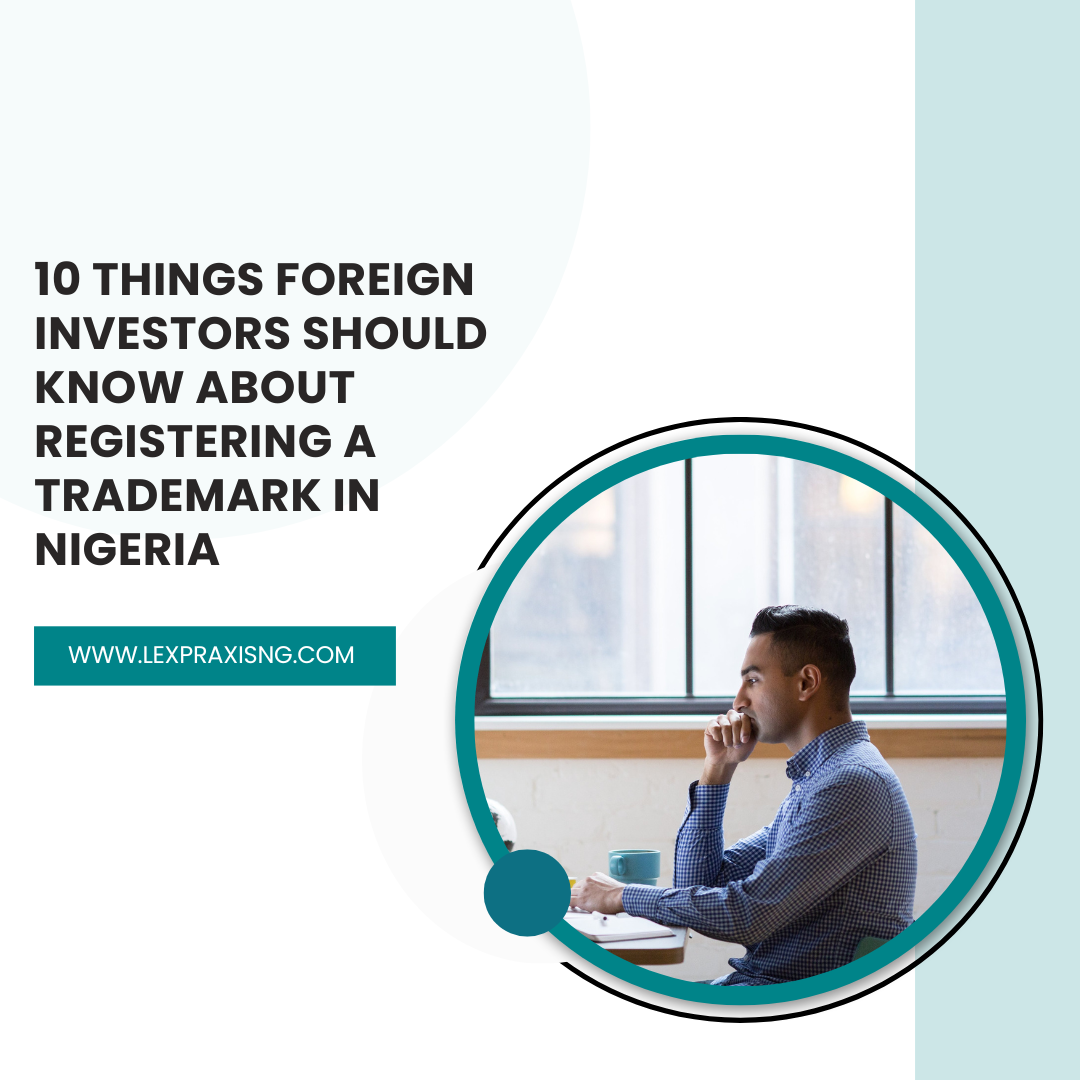Are you a foreigner looking to register your foreign company’s trademark in Nigeria? This article will outline ten important things you need to know about trademark registration in Nigeria. Some of these points may be familiar based on your experiences with registration in other countries, while others may be new to you.
In no particular order, below are the important points to note about trademark registration in Nigeria;
1. Owning a trademark in another country does not automatically grant rights protection in Nigeria
It’s important to note that just because your foreign company has a trademark registered in other countries such as the United States, France, etc., it doesn’t automatically mean that such a mark is protected in Nigeria. To ensure the protection of your foreign company’s trademark rights in Nigeria, it’s safest to register it in Nigeria as well.
2. Trademark registration is done based on the trademark class where a mark is available for registration
In Nigeria, trademarks are classified using the Nice Classification scheme, which consists of 45 classes. Classes 1 to 35 are for goods, while Classes 35 to 45 are for services. If you’d like more information on this, please refer to our article on the different classes of trademarks. An applicant can register in multiple classes for an extra fee.
3. Where a trademark is approved in a class, such registered mark does not enjoy intellectual property rights in other classes
This point is a follow-up to the second point above. Since trademark rights are issued in distinct classes, They only enjoy protection within the scope of the class registered.
4. A word, name, or phrase that is commonly used in relation to a particular trade cannot be registered for a product or service in that trade.
5. A registered trademark in Nigeria lasts for 7 (seven) years and can be renewed for a subsequent period of 14 (fourteen) years.
6. Registration in Nigeria involves several stages: conducting a search and submitting an application, acceptance of the application, publication in a trademark journal, and final certification. For more information on the registration process in Nigeria, please refer to our article on how to register a trademark in Nigeria.
7. It takes about a year to register a mark up to the final certificate stage. However, a letter of acceptance is recognized by various government institutions as evidence of registration at face value.
8. During the publication period in the journal, third parties can oppose the registration. Grounds for opposition may include prior rights, similarity to existing marks, misleading nature, etc. Foreigners who own a trademark in Nigeria should be prepared to defend their application during this period.
9. A trademark can be licensed or transferred to another party. The transfer should be officially recorded with the Trademarks Registry to ensure that the new owner’s rights are legally recognized. Additionally, a registered mark can be licensed to third parties, and these licenses should also be recorded to maintain the chain of title and avoid disputes. Therefore, a foreigner who owns a registered mark in Nigeria can transfer ownership or grant a license for its use within Nigeria.
10. To register a trademark in Nigeria as a foreigner, the following information is required: A Logo which may include words, name of the applicant, contact details of the applicant such as phone number, email, e.t.c
CONCLUSION
Registering a trademark in a new territory as a foreigner may seem daunting. However, having adequate information about the procedures and requirements could make the process less complicated. This article is a guide to provide you with the basic information you need for registering your foreign company’s trademark in Nigeria. If you need professional assistance with the registration process, please feel free to contact us by sending an email to our address or by using the Whatsapp icon on this page for a faster response, and we’ll attend to you.
